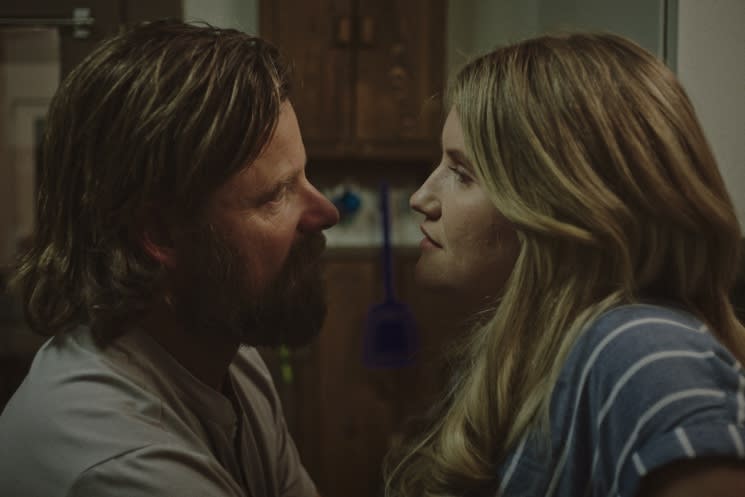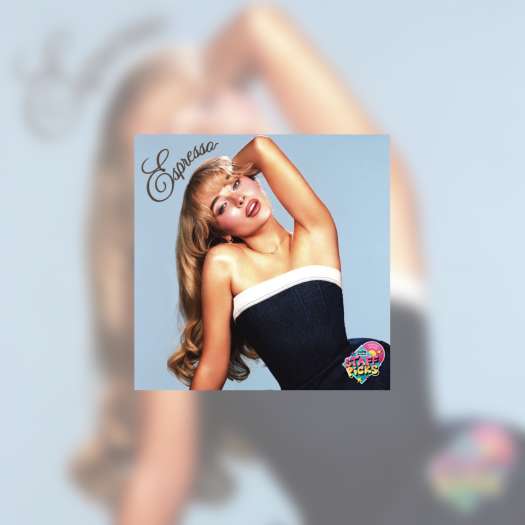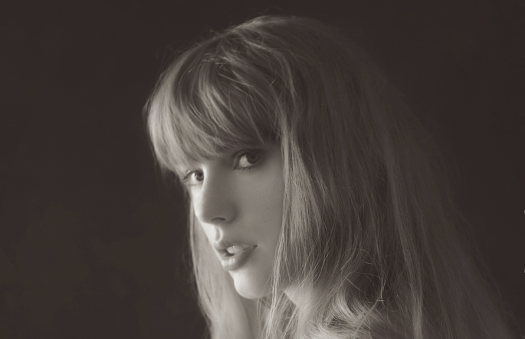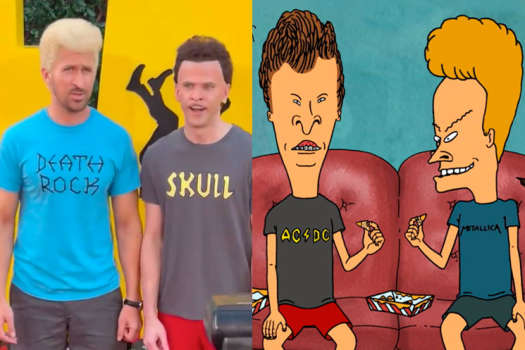The first few moments of Cowboys play out like a Jimmy Stewart Western — The Cheyenne Social Club, to be exact. Two figures riding on a single horse through an expansive wilderness, underneath the biggest sky you can imagine. But stick with it a bit longer and it'll tug at your heart strings in a way Stewart, despite his drawl, never could. A compelling and beautifully-framed and performed tale of a trans boy who just wants to be a cowboy, Cowboys asks audiences what it takes to be a good parent, all the while redefining the most American of genres.
Written and directed by Anna Kerrigan, the movie follows Troy (Steve Zahn) as he runs off with his son Joe (Sasha Knight) into the Montana wilderness. They're running away from Sally (Jillian Bell), Joe's mother who refuses to accept that Joe is trans. Sally calls the cops and the sympathetic, good-at-her-job detective Faith (Ann Dowd) shows up. What follows is an adventure through nature stunningly captured by cinematographer John Wakayama Carey, juxtaposed by a retelling of what took place before Troy and Joe ran away. We learn that Troy has bipolar disorder and needs to take his medication consistently, that his relationship with ex-wife Sally has been troubled for a while, and that Sally is unable to understand who her child really is.
Kerrigan does a spectacular job of getting into Joe's gaze as he looks at the men — cowboys who are seemingly the epitome of masculinity — around him. Joe watches them interact with one another with a freedom that he yearns for himself. In moments of quiet, Kerrigan shows Joe donning the clothes of a cowboy similar to the ones Troy wears — his dad is his idol. Knight subtly portrays the confidence Joe feels as he touches his belt buckle in front of a mirror. When Joe comes out to Troy, he says that he has known who he is for a very long time and that he is certain of who he is — and, accordingly, Kerrigan shows us Joe being himself in scenes of calm stillness and content silence.
Joe's narrative is the framework that anchors the tumultuousness of Troy and Sally's conflicts. While Troy has difficulties in attaining a stable job and financial security for Sally and Joe, Sally has trouble recognizing the needs of her child. She keeps pushing hyper-feminine clothing onto Joe, and she doesn't listen to him when he says he wants to read cowboy books and play with cowboy toys. She thinks that Troy is a bad influence insofar as he gives Joe whatever he wants. As the audience, you wonder if Sally is a bad mother, if she has it in her to be good to Joe. And you wonder if Troy is able to care for his child.
The viewer is left wishing that there was a bit more of Joe — a few more scenes of him enjoying existence, such as the one where he's excitedly looking into a river, or the one where he's touching the belt buckle that Troy gives him. But the adventure of the movie doesn't leave too much room for these quieter moments, which is a shame.
The performances are heartfelt. Zahn is dizzying in Troy's more manic episodes, and heartbreaking when he's frustrated with himself. Bell is infuriating as Sally, in a good way — she will make you absolutely despise her at moments, which is good, because Sally is a flawed, human character. Joe is just a kid and he wants to be happy, and Knight depicts Joe's energetic bursts and desperate sadnesses brilliantly. These three characters are wonderfully written.
The movie is like a test of the two parents, while of Joe it's a gradual unfolding and discovery of who he is in his ideal setting: that of the cowboy's wilderness. In Cowboys, Kerrigan gives us a nuanced Western that hopefully reminds us that the kids are alright — it's the adults who need to get it together.
(Vortex Media)Written and directed by Anna Kerrigan, the movie follows Troy (Steve Zahn) as he runs off with his son Joe (Sasha Knight) into the Montana wilderness. They're running away from Sally (Jillian Bell), Joe's mother who refuses to accept that Joe is trans. Sally calls the cops and the sympathetic, good-at-her-job detective Faith (Ann Dowd) shows up. What follows is an adventure through nature stunningly captured by cinematographer John Wakayama Carey, juxtaposed by a retelling of what took place before Troy and Joe ran away. We learn that Troy has bipolar disorder and needs to take his medication consistently, that his relationship with ex-wife Sally has been troubled for a while, and that Sally is unable to understand who her child really is.
Kerrigan does a spectacular job of getting into Joe's gaze as he looks at the men — cowboys who are seemingly the epitome of masculinity — around him. Joe watches them interact with one another with a freedom that he yearns for himself. In moments of quiet, Kerrigan shows Joe donning the clothes of a cowboy similar to the ones Troy wears — his dad is his idol. Knight subtly portrays the confidence Joe feels as he touches his belt buckle in front of a mirror. When Joe comes out to Troy, he says that he has known who he is for a very long time and that he is certain of who he is — and, accordingly, Kerrigan shows us Joe being himself in scenes of calm stillness and content silence.
Joe's narrative is the framework that anchors the tumultuousness of Troy and Sally's conflicts. While Troy has difficulties in attaining a stable job and financial security for Sally and Joe, Sally has trouble recognizing the needs of her child. She keeps pushing hyper-feminine clothing onto Joe, and she doesn't listen to him when he says he wants to read cowboy books and play with cowboy toys. She thinks that Troy is a bad influence insofar as he gives Joe whatever he wants. As the audience, you wonder if Sally is a bad mother, if she has it in her to be good to Joe. And you wonder if Troy is able to care for his child.
The viewer is left wishing that there was a bit more of Joe — a few more scenes of him enjoying existence, such as the one where he's excitedly looking into a river, or the one where he's touching the belt buckle that Troy gives him. But the adventure of the movie doesn't leave too much room for these quieter moments, which is a shame.
The performances are heartfelt. Zahn is dizzying in Troy's more manic episodes, and heartbreaking when he's frustrated with himself. Bell is infuriating as Sally, in a good way — she will make you absolutely despise her at moments, which is good, because Sally is a flawed, human character. Joe is just a kid and he wants to be happy, and Knight depicts Joe's energetic bursts and desperate sadnesses brilliantly. These three characters are wonderfully written.
The movie is like a test of the two parents, while of Joe it's a gradual unfolding and discovery of who he is in his ideal setting: that of the cowboy's wilderness. In Cowboys, Kerrigan gives us a nuanced Western that hopefully reminds us that the kids are alright — it's the adults who need to get it together.




